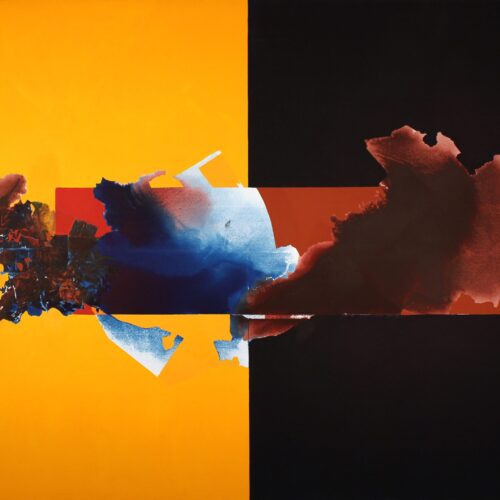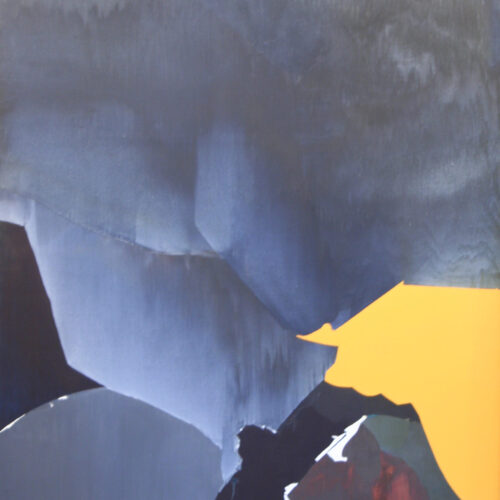
Paintings
Hood’s paintings are at the heart of her artistic practice. Ranging from intimate to large-scale, her emotionally charged canvases defy easy categorization into any distinct art historical style. Incorporating elements of realism and figuration in her early works and later moving into pure abstraction, Hood flirts with Surrealism, Symbolism, Color Field Painting, and Abstract Expressionism. Artists that Hood acknowledged that she looked to included Constantin Brancusi, Willem de Kooning, James Ensor, Max Ernst, Arshile Gorky, Franz Kline, Henri Matisse, Edvard Monk, Pablo Picasso, Odilon Redon, and Mark Tobey. While these influences are apparent in her works, Hood developed a style that embodies her life experiences and interests in philosophy, religion, myth, and nature.
In 1970, Hood began working in a studio rented for her by the Museum of Contemporary Art, Houston, which allowed her to increase the scale of her work. It was at this time, that her paintings, in her words, “began to fly,” and marked an era of prolific production that continued until the late 1990s. During this period, she created her strongest paintings and received considerable recognition, especially in her home state of Texas.
Throughout her body of work, Hood balanced light and dark tones, opposing bold colors, hard lines, and soft textures by combining various processes. Although she was notoriously secretive about her techniques, it is clear that Hood often rotated her canvases and poured paint to create drips in opposing directions; utilized chemical resists to form washes and mottled areas against solid colors; taped off areas to develop hard-edged lines; and exploited decalcomania—the process of imprinting texture by pressing paint filled crumpled paper or foil against the surface of the canvas—along with infilling areas with both precise brushstrokes.

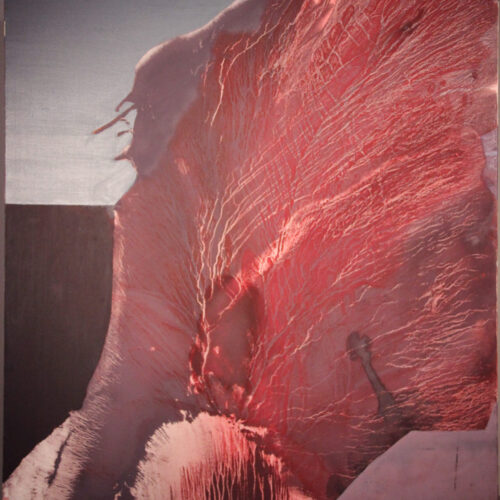
River Ganges, n.d.
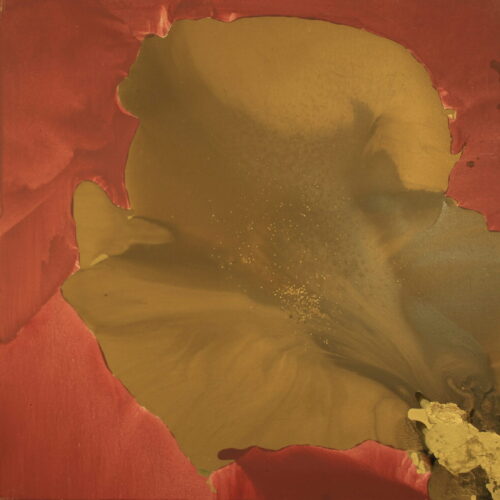
Indian Flower, 1998
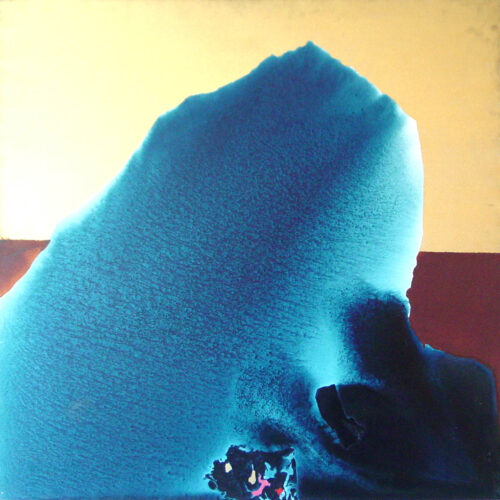
Wave V, 1997
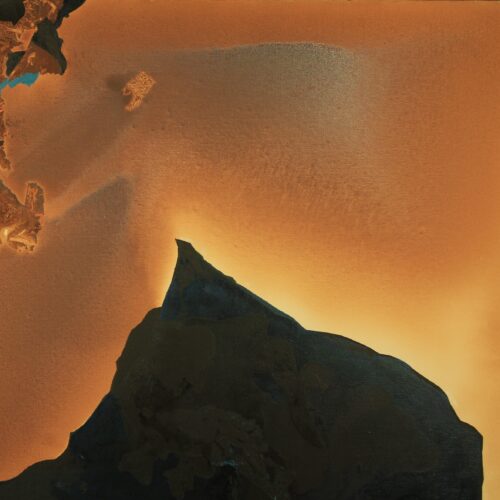
Going Forth IV, 1997
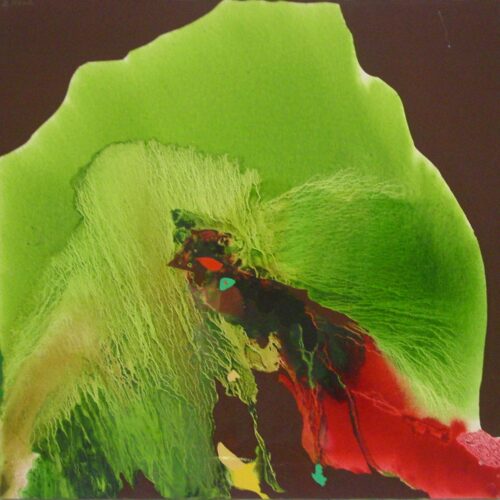
The Wave of Colors, 1995
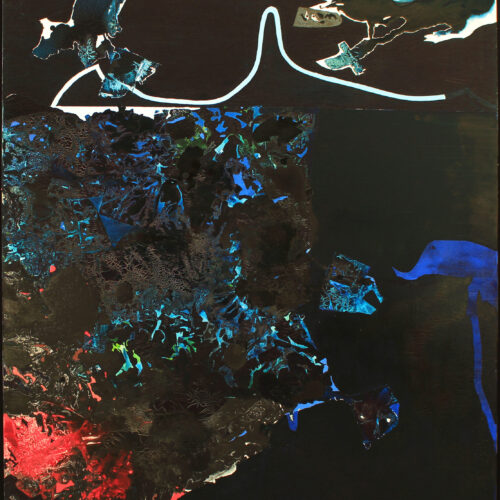
Dark Plexus VI, 1994
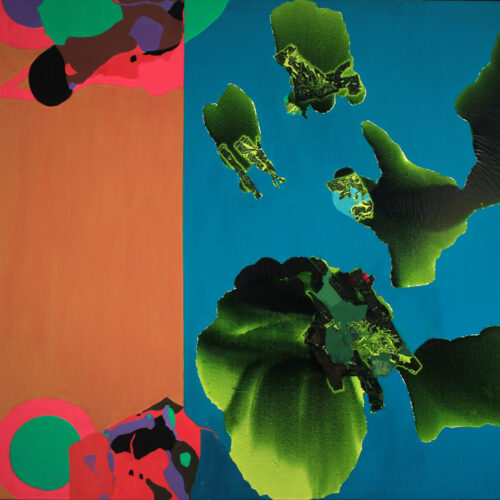
Untitled, late 1980s
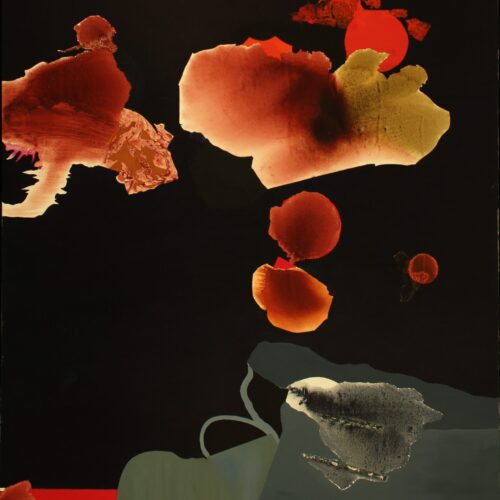
Untitled, late 1980s
